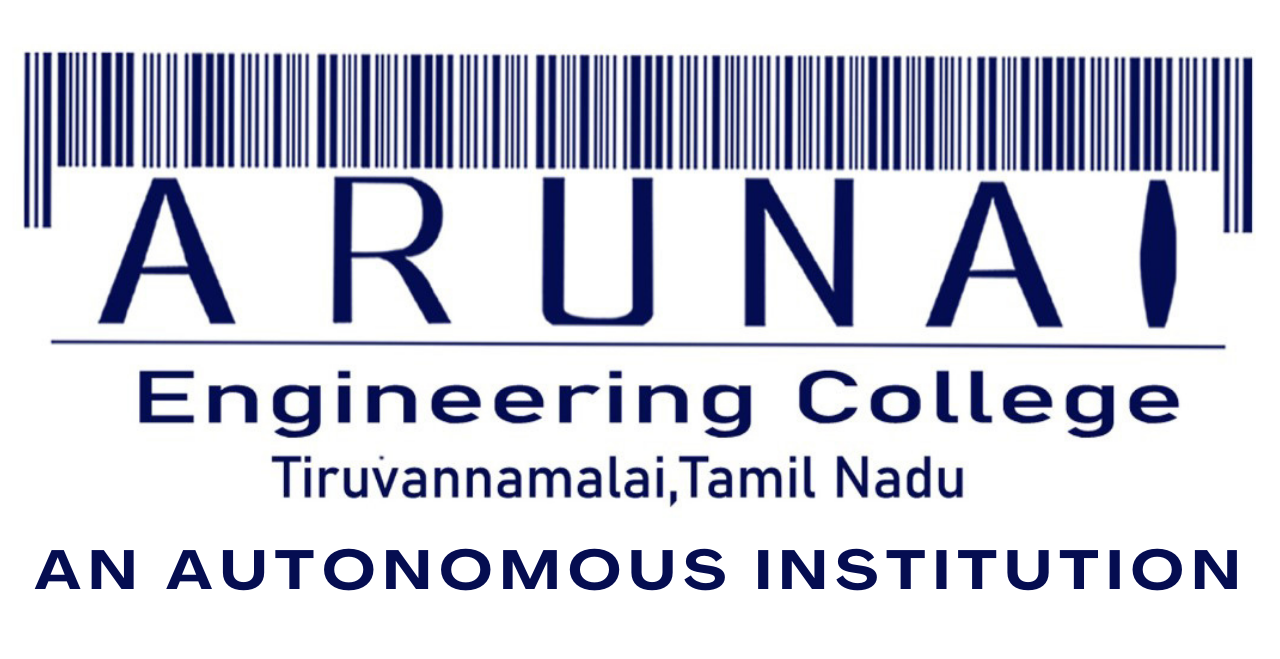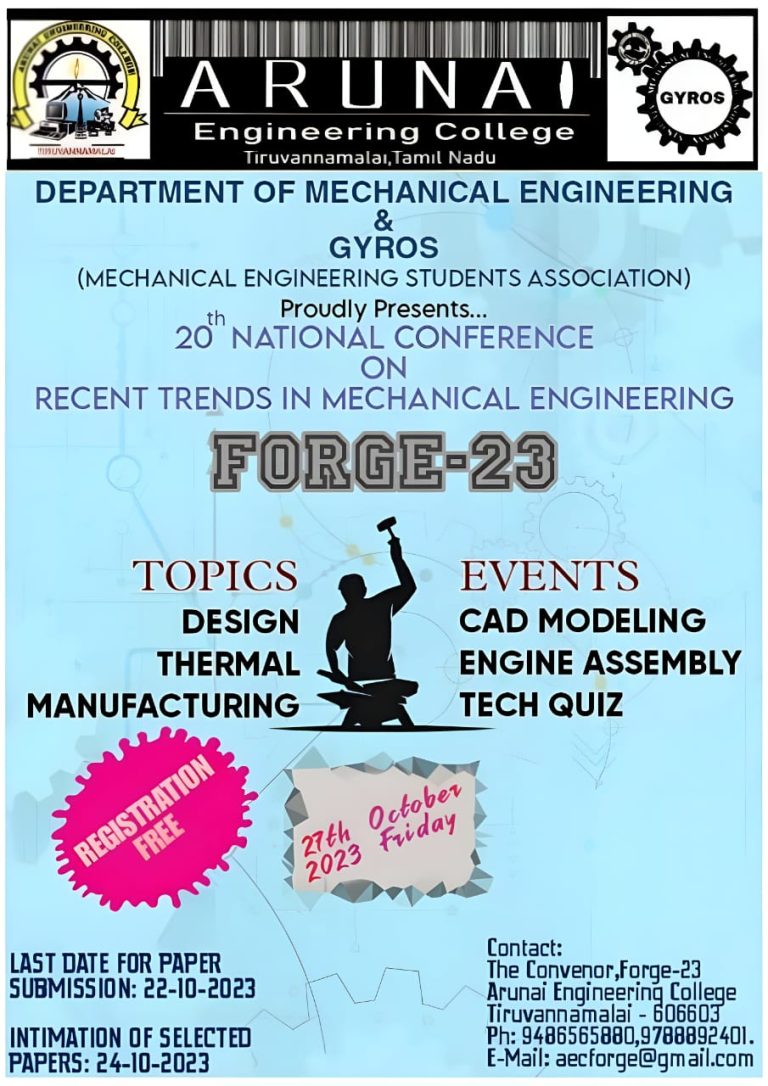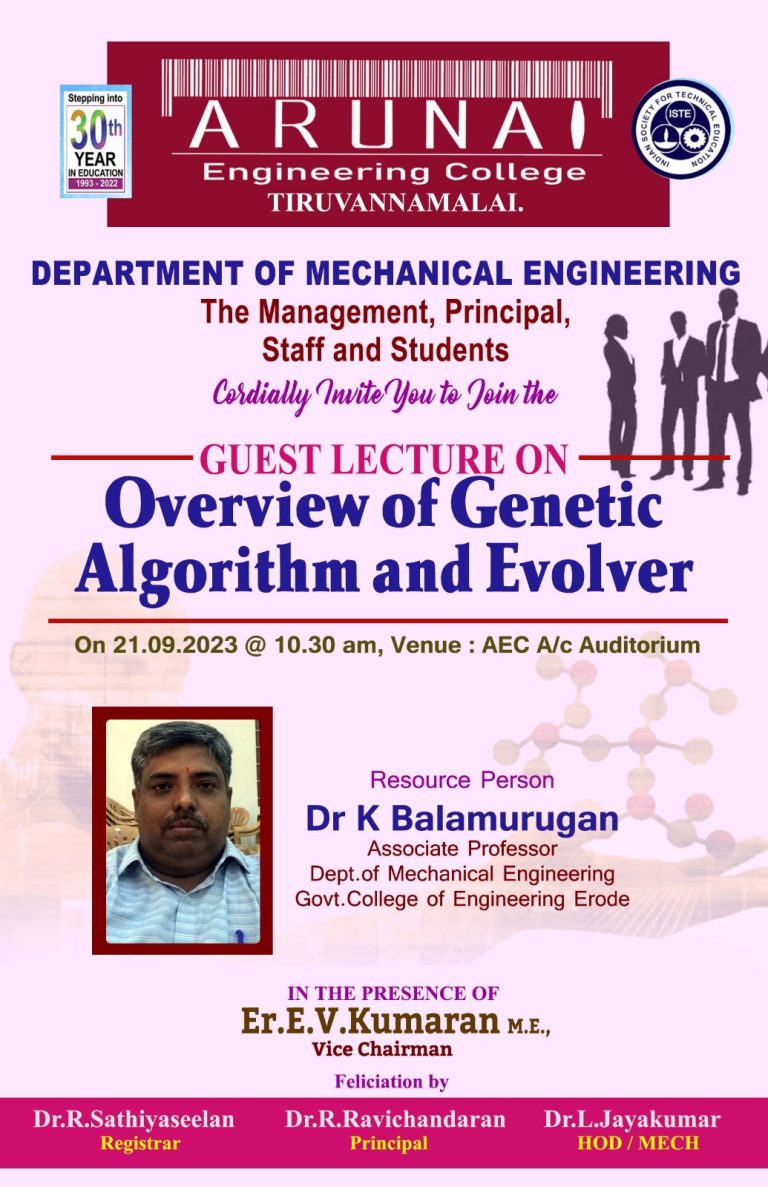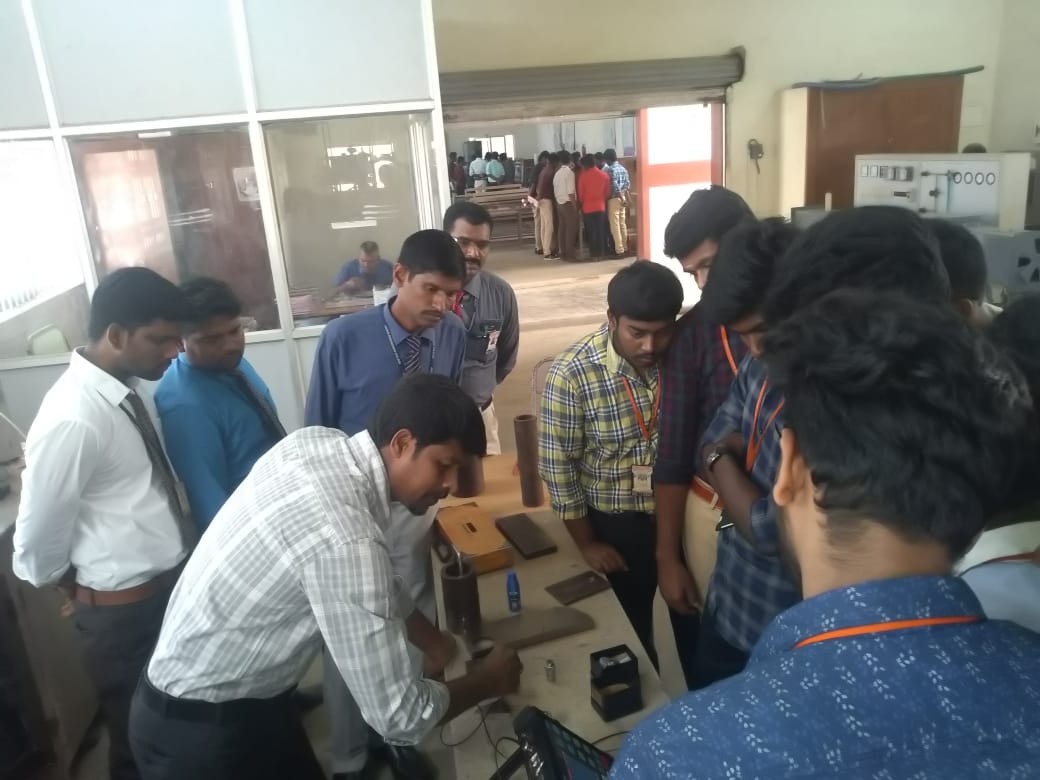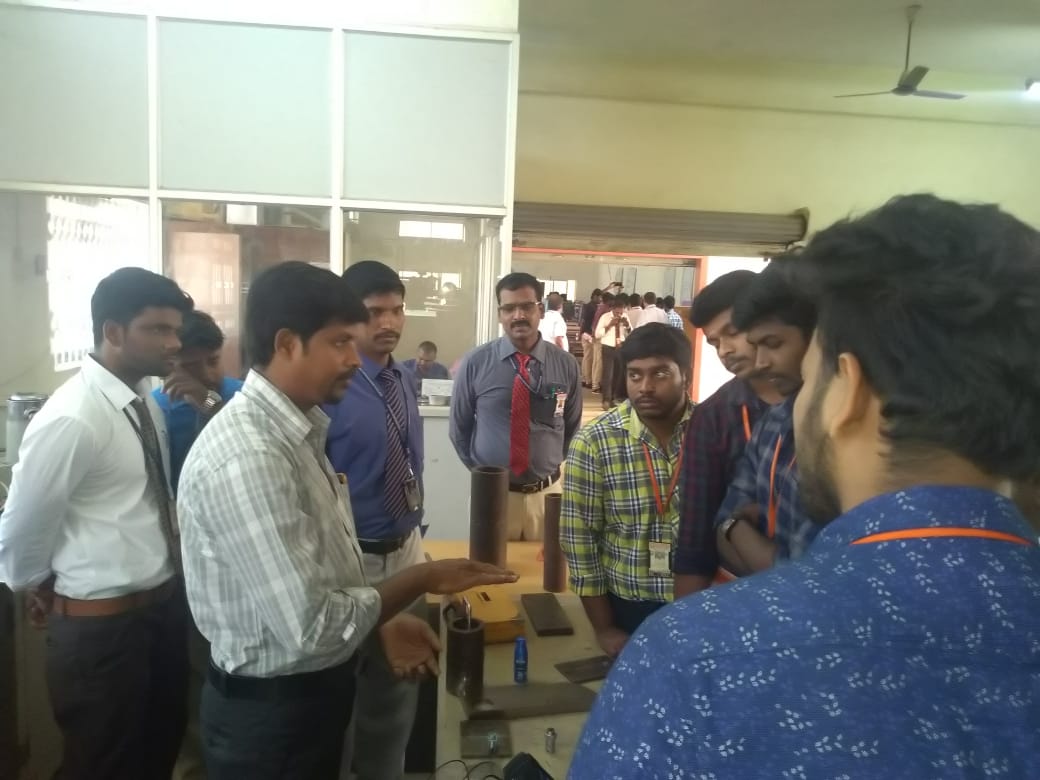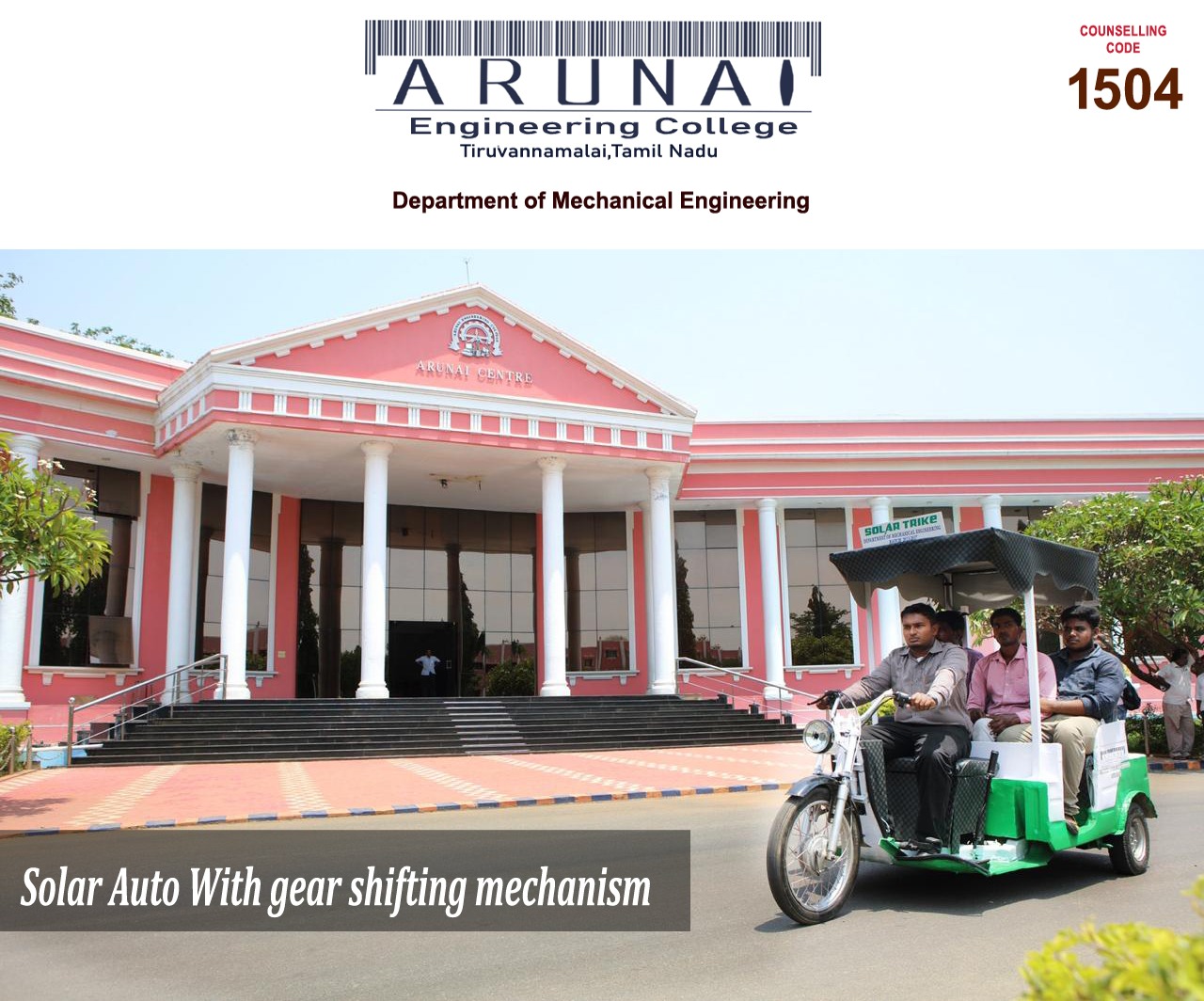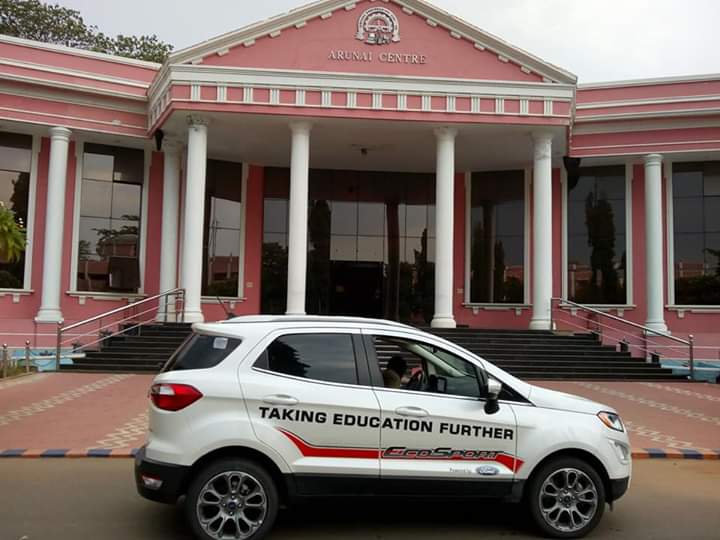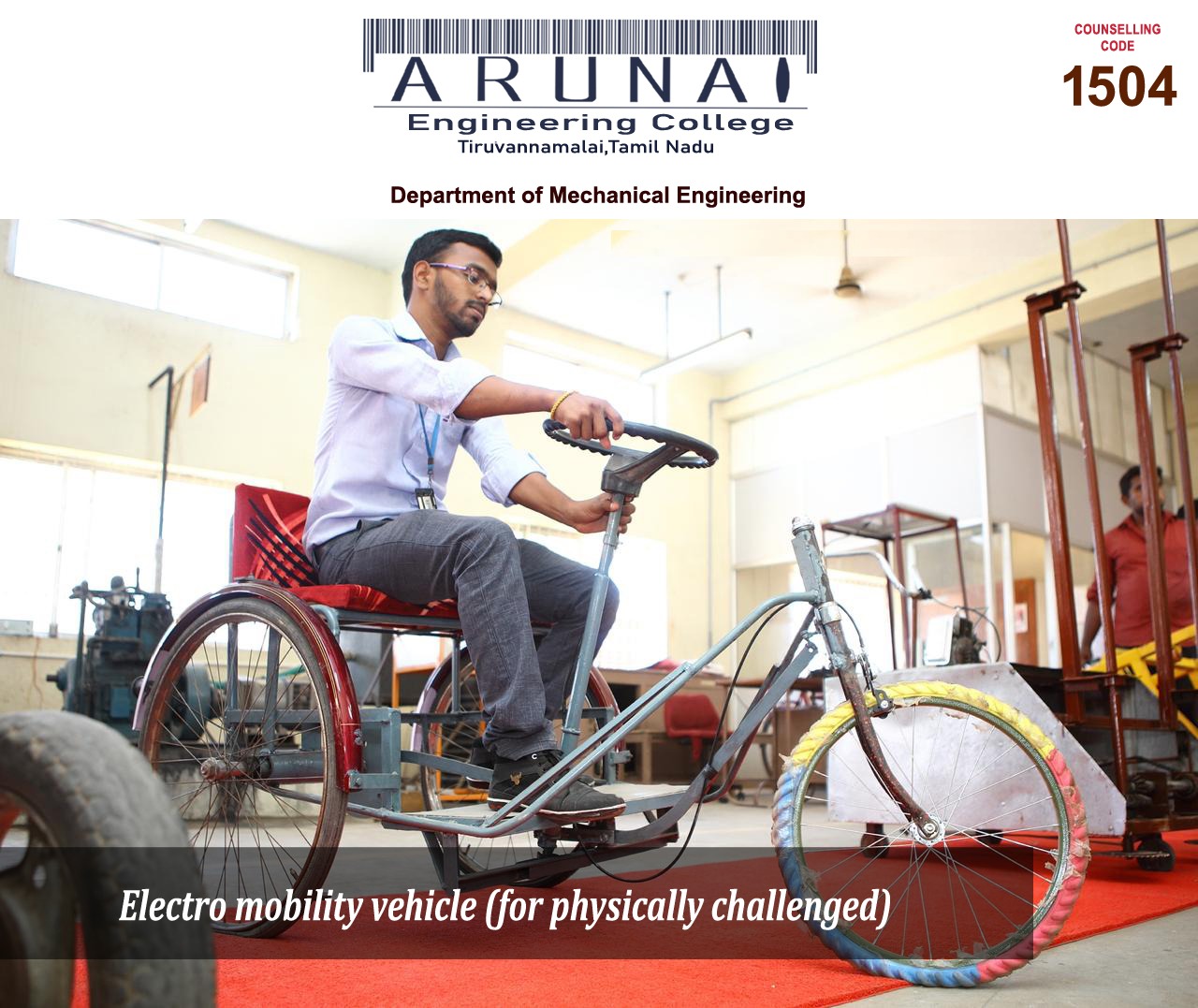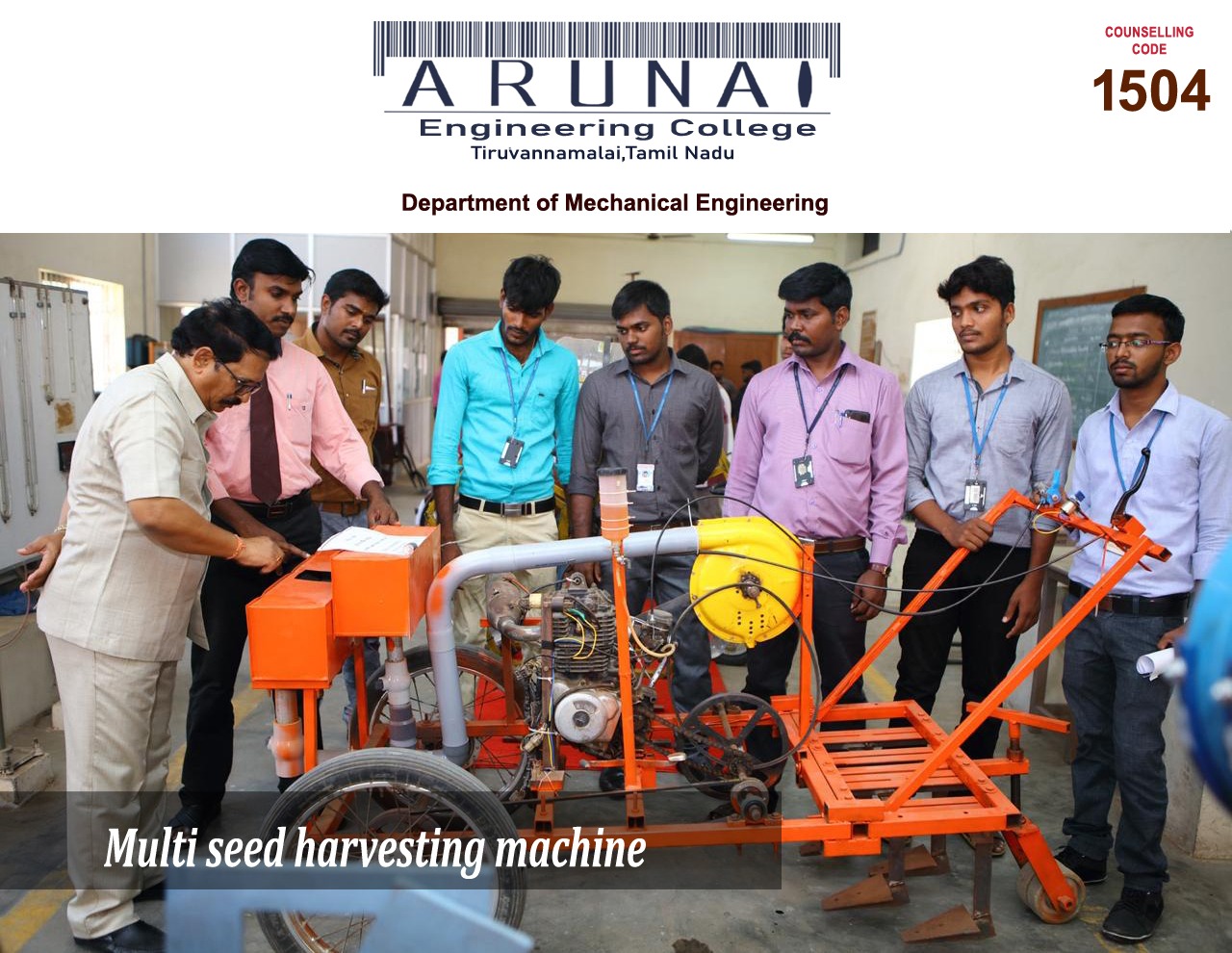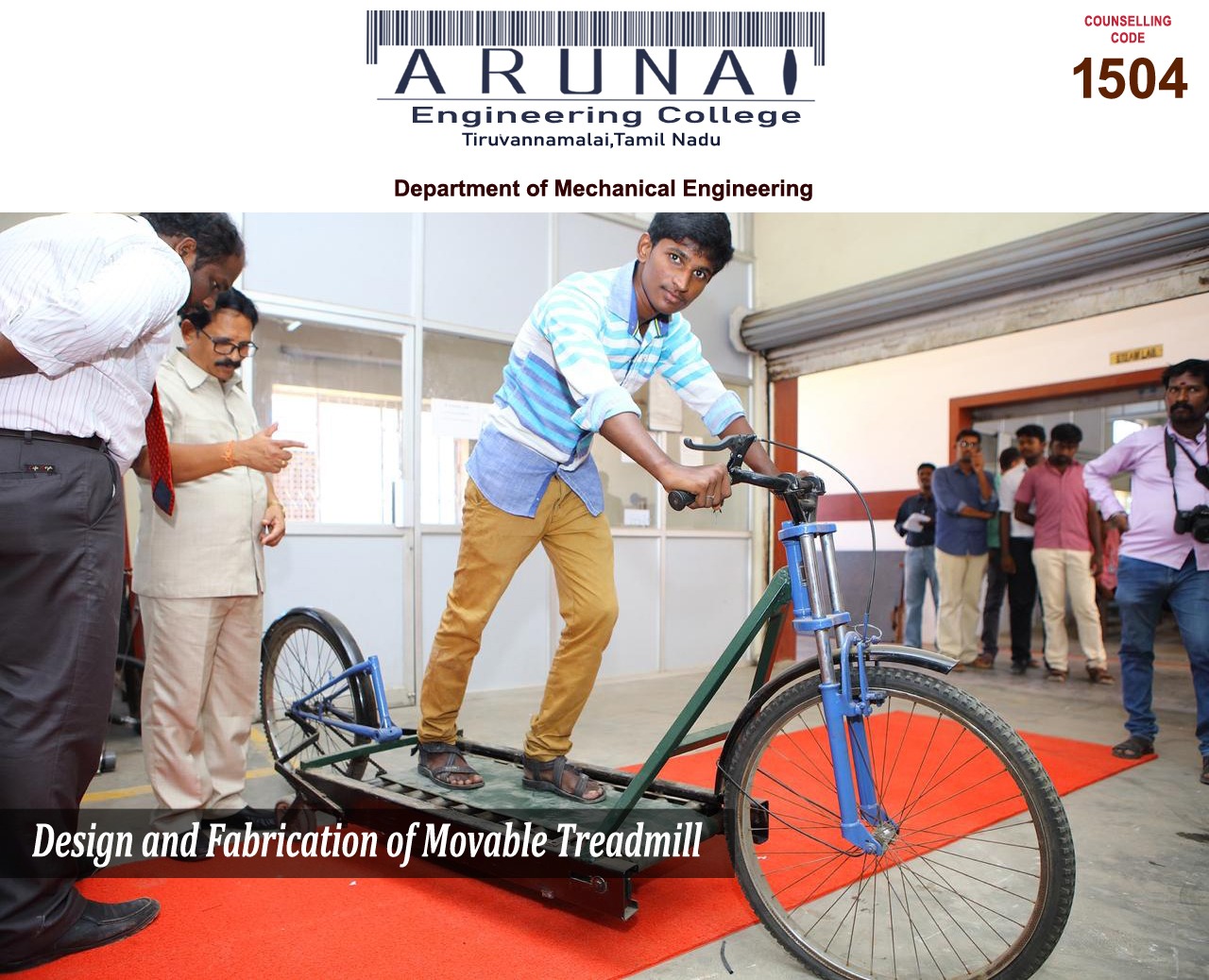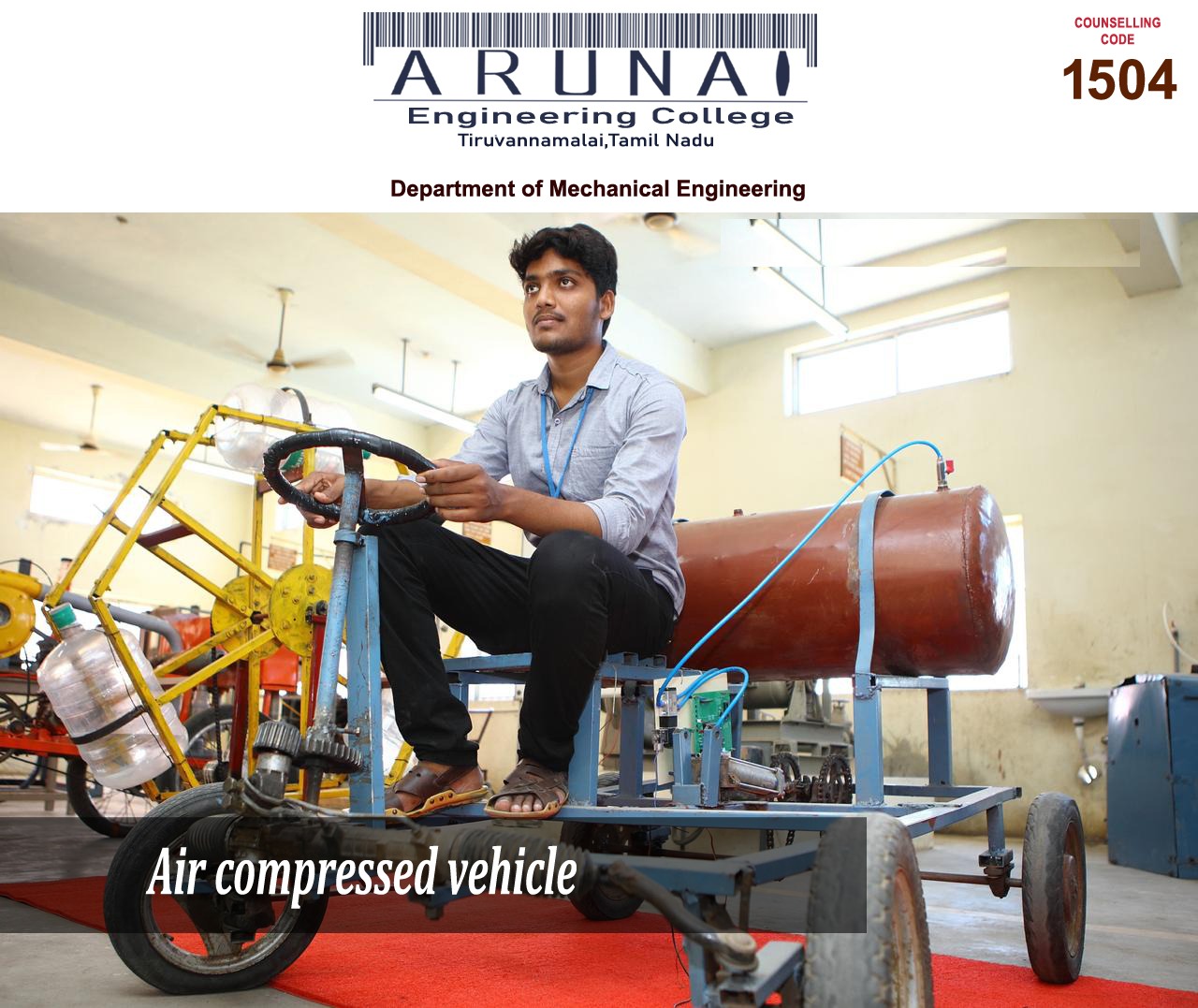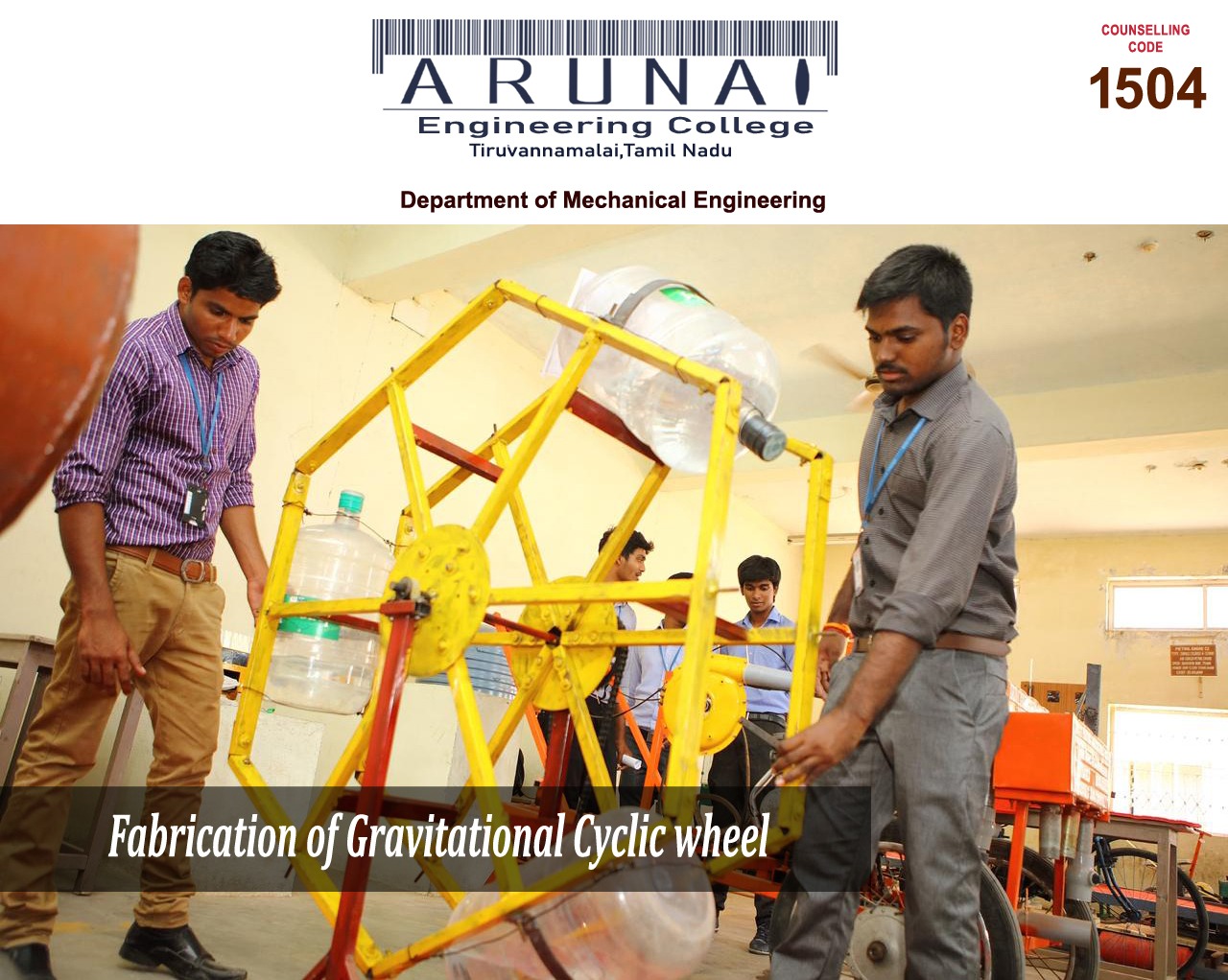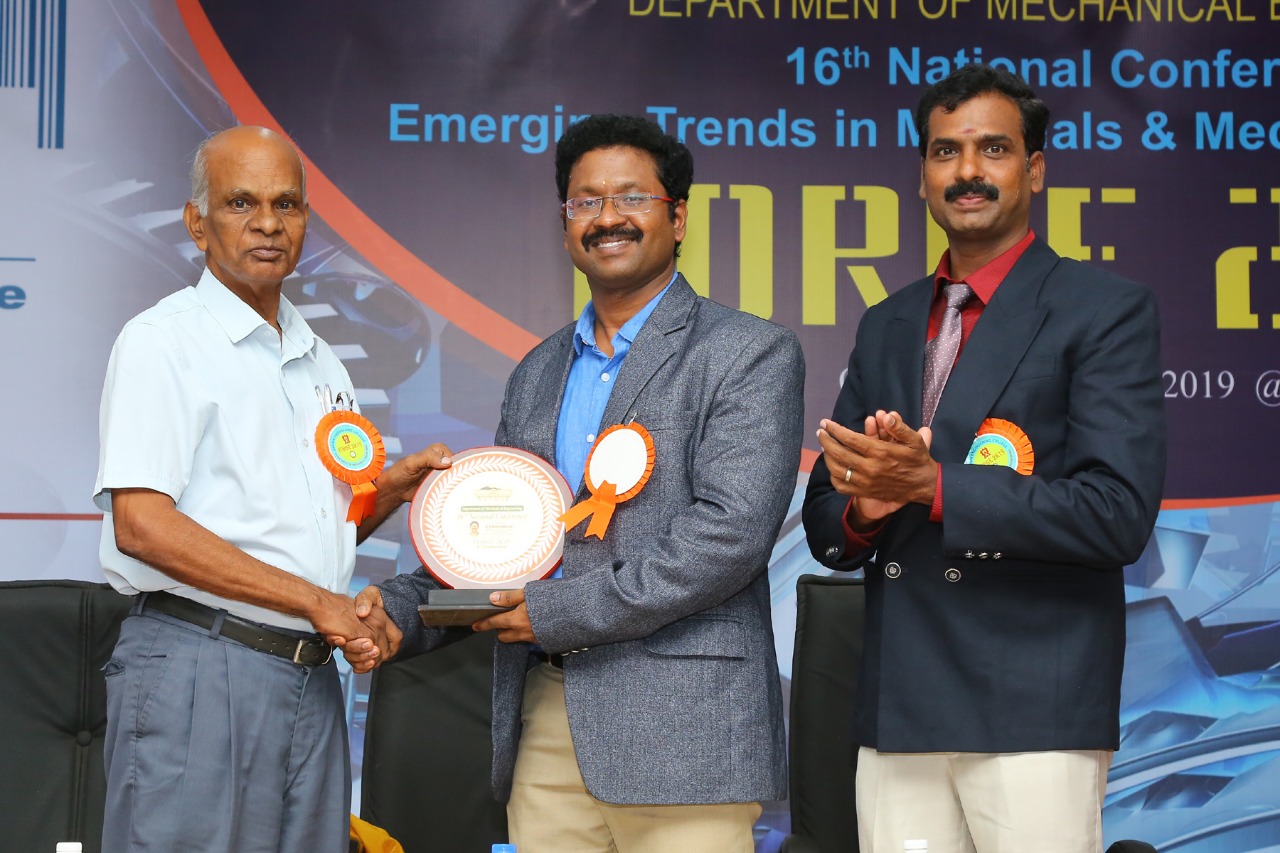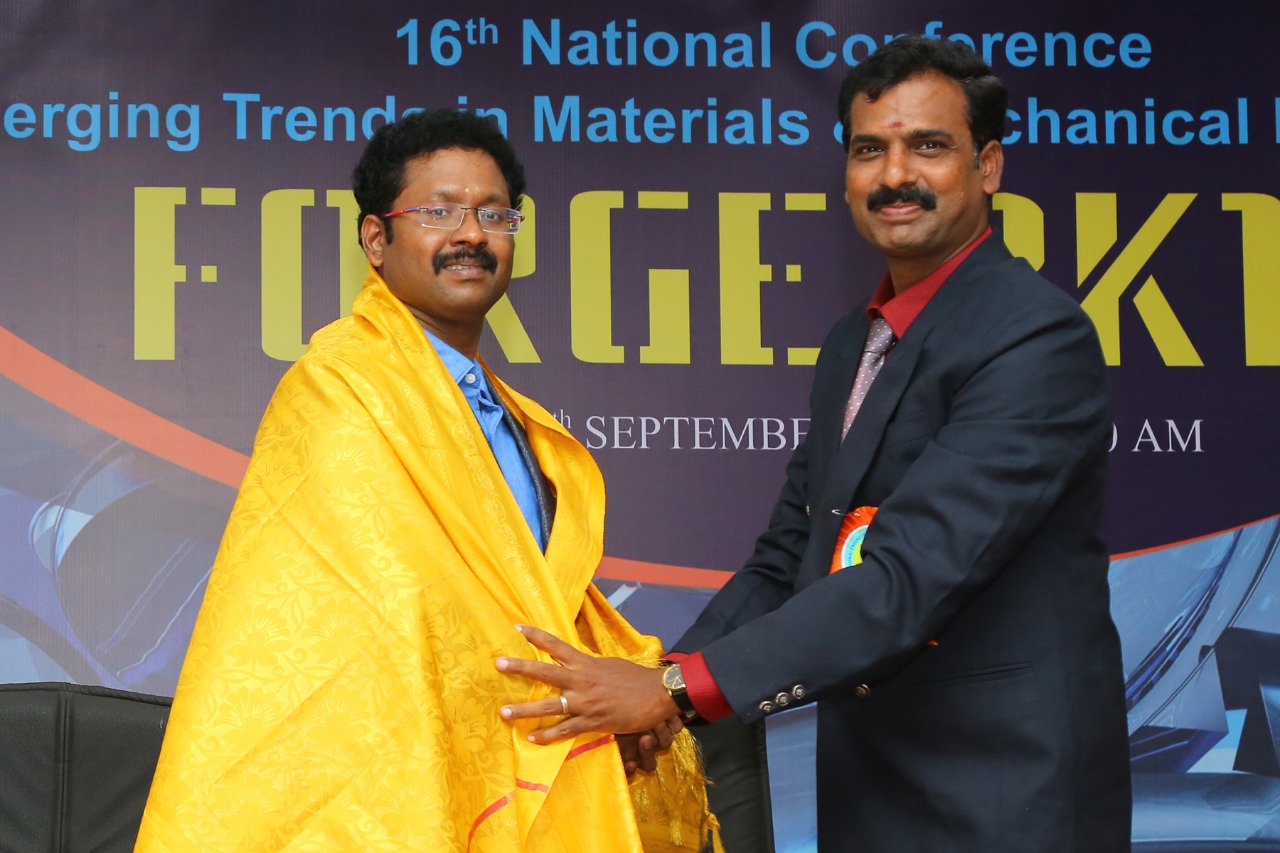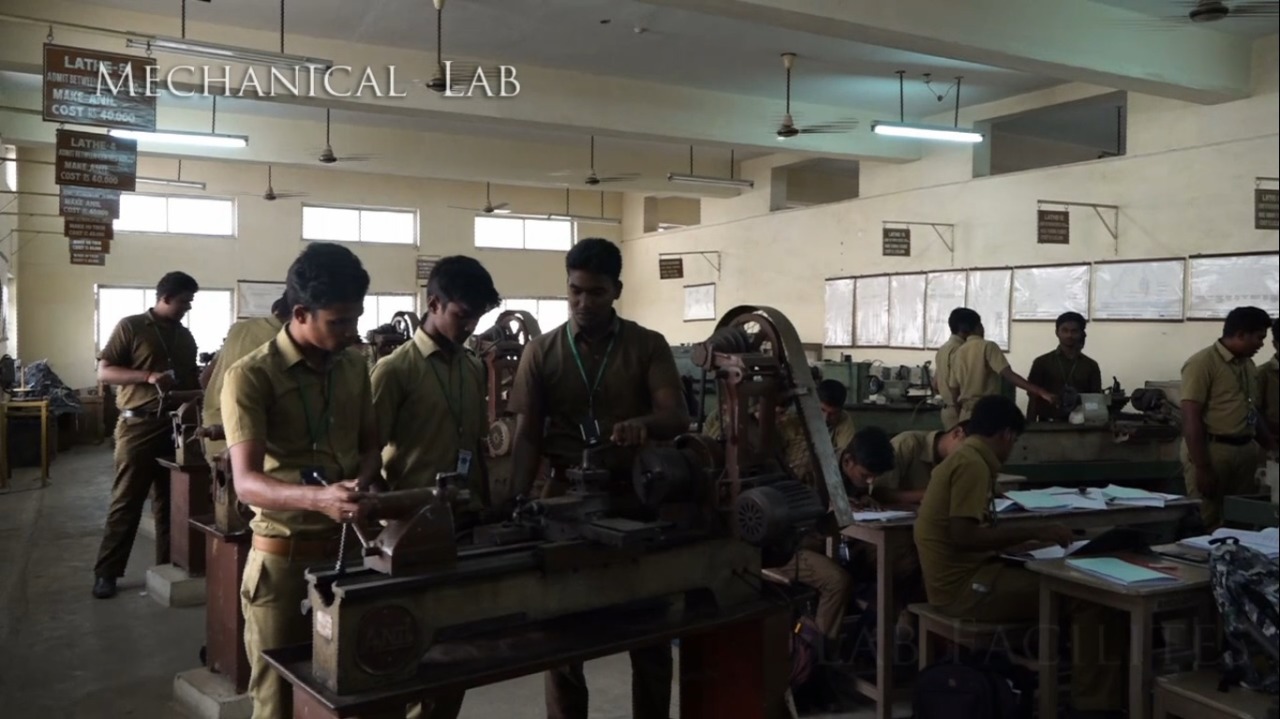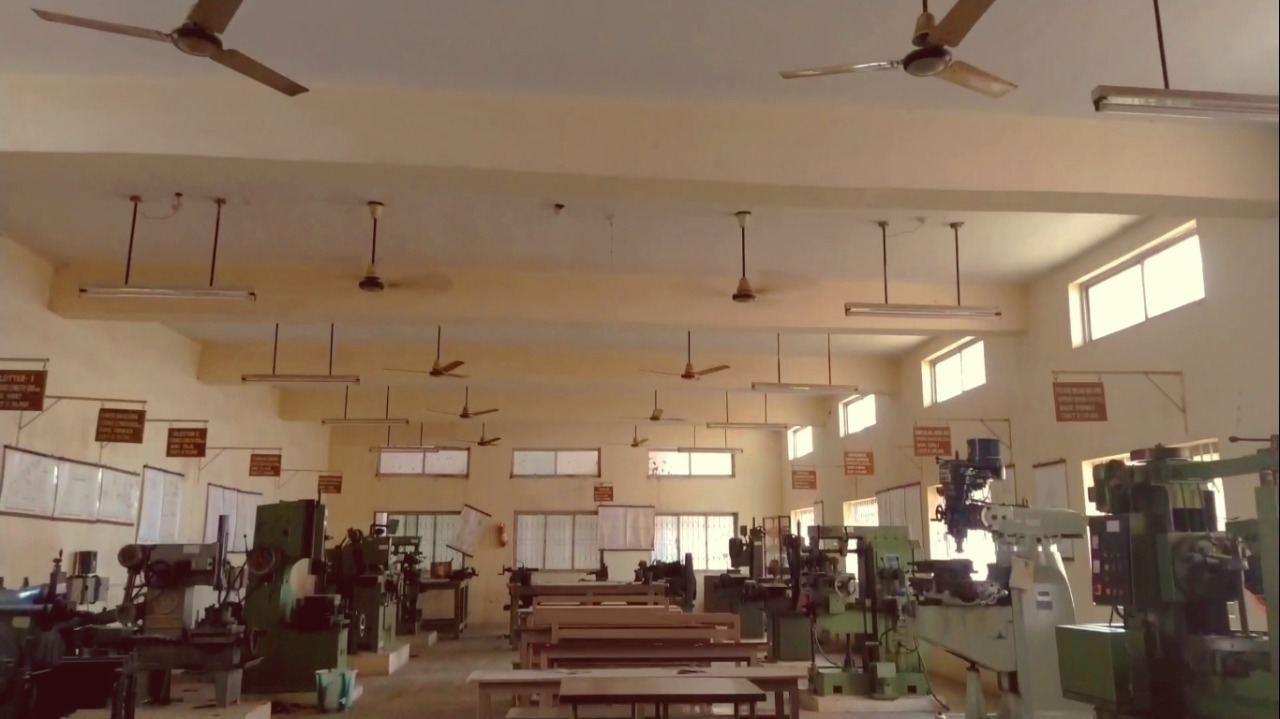Latest Videos
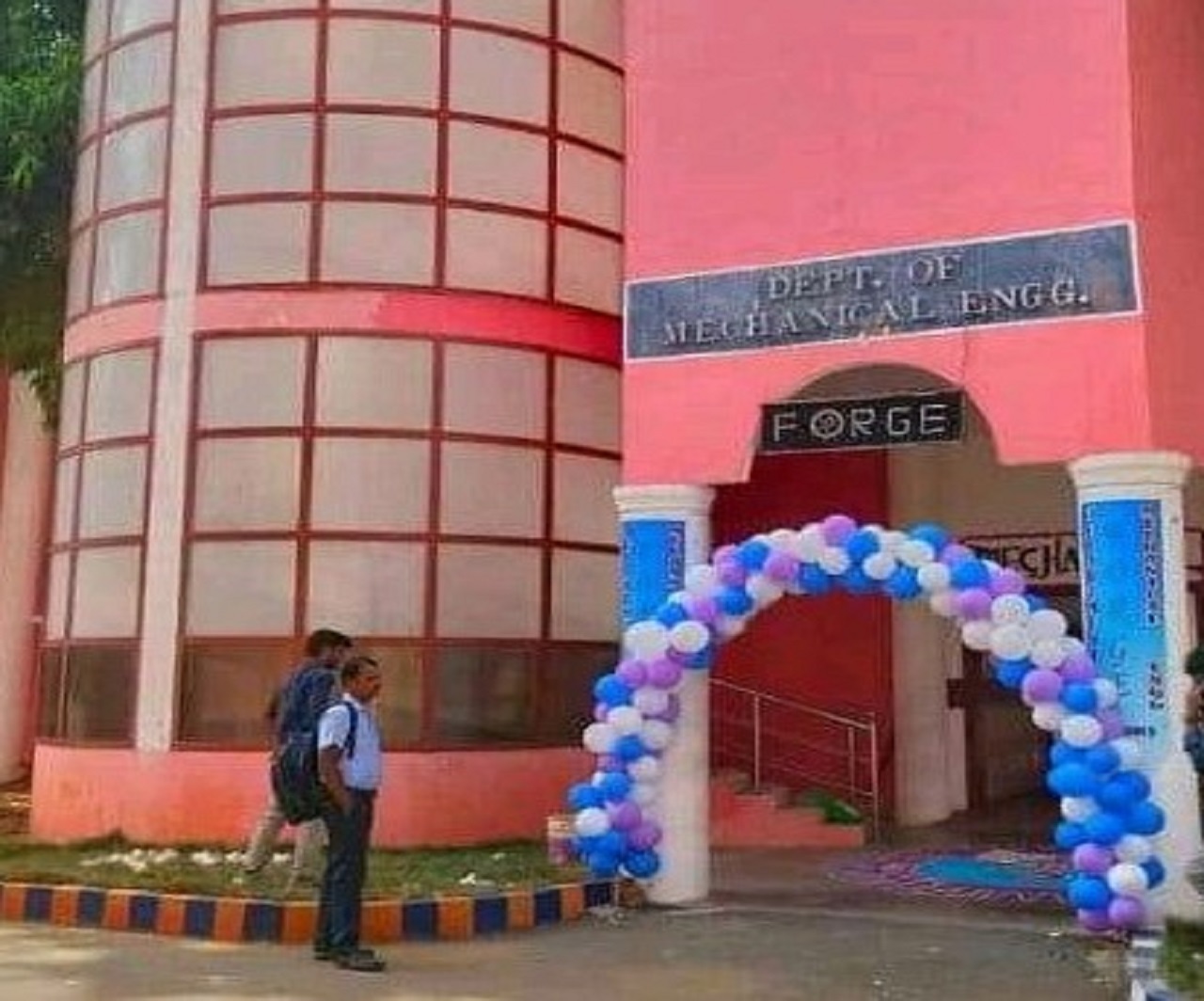
B.E - Mechanical Engineering
Mechanical Engineering Department is to provide high class education enabling the students to have the ability to design, plan, administer and manage the latest technologies in the field of mechanical engineering to face the future challenges.
1.Preparation
To prepare well-formed and successful Mechanical Engineers capable of becoming leaders in their profession.
2. Core Competence
To apply sound knowledge in mathematical, scientific and engineering fundamentals required to solve engineering problems.
3. Breadth
To carry out basic and applied research leading to new ideas, systems and devices in Mechanical engineering and interdisciplinary areas.
4. Professionalism
To inculcate in students professional and ethical attitude, effective communication skills, teamwork skills, multidisciplinary approach, written ethical codes & guidelines and an ability to relate engineering issues to broader social context.
5. Learning Environment
To provide with an academic environment of excellence, leadership and guidelines for life-long learning needed for a successful career.
To produce multi – skilled, ethical Mechanical Engineering with Global perspectives and national ethos.
To serve the needs of the Indian and International Industries.
To impart training and Technology transfer appropriate to the rural areas and Industries.
Providing suitable teaching methods and adequate high quality focused education in thrust areas of Mechanical Engineering like energy, newer material, CAE, etc.,
Training in problem solving, assisting in analytical skills and developing technical competence with practical exposure to the student to meet the challenges of new millennium.
PEO
PEO1 : Have a successful career in Mechanical Engineering and allied industries.
PEO2 : Have expertise in the areas of Design, Thermal, Materials and Manufacturing .
PEO3 : Contribute towards technological development through academic research and industrial practices.
PEO4 : Practice their profession with good communication, leadership, ethics and social responsibility.
PEO5 : Graduates will adapt to evolving technologies through life-long learning.
Program Outcomes (POs)
PO1 – Engineering Knowledge: Apply the knowledge of mathematics, science, engineering fundamentals and an engineering specialization to the solution of complex engineering problems.
PO2 – Problem Analysis: Identify, formulate, review research literature, and analyze complex engineering problems reaching substantiated conclusions using first principles of mathematics, natural sciences, and engineering sciences.
PO3 – Design / Development of solutions: Design solutions for complex engineering problems and design system components or processes that meet the specified needs with appropriate consideration for the public health and safety, and the cultural, societal, and environmental considerations.
PO4 – Conduct investigations of complex problems: Use research-based knowledge and research methods including design of experiments, analysis and interpretation of data, and synthesis of the information to provide valid conclusions.
PO5 – Modern tool usage: Create, select, and apply appropriate techniques, resources, and modern engineering and IT tools including prediction and modeling to complex engineering activities with an understanding of the limitations.
PO6 – The engineer and society: Apply reasoning informed by the contextual knowledge to assess societal, health, safety, legal and cultural issues and the consequent responsibilities relevant to the professional engineering practice.
PO7 – Environment and sustainability: Understand the impact of the professional engineering solutions in societal and environmental contexts, and demonstrate the knowledge of, and need for sustainable development.
PO8 – Ethics: Apply ethical principles and commit to professional ethics and responsibilities and norms of the engineering practice.
PO9 – Individual and team work: Function effectively as an individual and as a member or leader in diverse teams, and in multidisciplinary settings.
PO10 – Communication: Communicate effectively on complex engineering activities with the engineering community and with society at large, such as, being able to comprehend and write effective reports and design documentation, make effective presentations, and give and receive clear instructions.
PO11 – Project management and finance: Demonstrate knowledge and understanding of the engineering management principles and apply these to one’s own work, as a member and leader in a team, to manage projects and in multidisciplinary environments.
PO12 – Life-long learning: Recognize the need for and have the preparation and ability to engage in independent and lifelong learning in the broadest context of technological change.
Program Specific Outcomes (PSOs)
PSO1 : Design components of products and develop systems using CAD/CAM/CAE tools.
PSO2 : Provide manufacturing solutions, including material, process(es), process plans and inspect products and their components.
PSO3 : Design and analyse heat power (thermal) devices/system. Develop simulation models of thermal and manufacturing systems using Computer aided analysis tools.
Alumni's Feedback

Bargav Chander
Arunai Engineering college provided many additional courses to enrich our knowledge regarding topics other than that were in curriculum.

Santhoshkumar Kumaravel
Selecting Arunai Engineering college was the first stepping stone, that i had in my life to achieve a best career.
Latest News
GUEST LECTURE
SEP 09, 2023 | @ 10:30 AM Overview of Genetic Algorithm and Evolver organized by Dept of Mechanical
